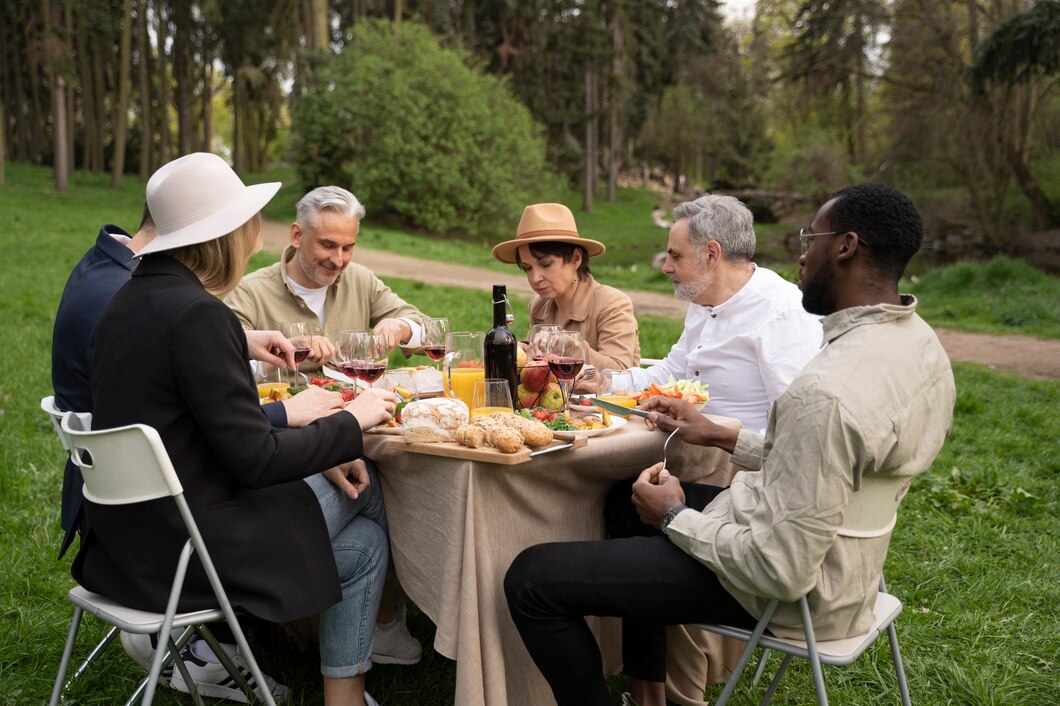The Joy of Gastronomy in Later Life
As we age, maintaining an active social and mental life is crucial for overall well-being. Participation in gourmet clubs offers seniors a delightful blend of social interaction and educational engagement. Imagine gathering around a well-set table, sharing stories and laughter, while exploring the intricacies of different recipes and cooking techniques. This camaraderie and exploration can significantly uplift the spirits and bring zest to daily living.
The Benefits of Joining a Gourmet Club
- Social Interaction and Community Building
Culinary clubs serve as an excellent social hub. Members meet regularly to exchange recipes, cook together, and enjoy each other's company. This enhances social connections and helps seniors avoid the pitfalls of isolation often encountered in retirement.
- Cognitive Engagement
Engaging in cooking and gardening activities stimulates cognitive functions. Seniors learn new skills, follow detailed recipes, and problem-solve when things go wrong in the kitchen. This continuous learning keeps the mind sharp and active.
- Health and Nutrition
Gourmet clubs emphasize the importance of healthy eating. Members often explore nutritious recipes that cater to various dietary needs, promoting a balanced and wholesome diet. Cooking healthy meals can lead to improved physical health and well-being.
- Cultural Exploration
Through various gourmet activities, seniors can explore global cuisines and food traditions. These culinary adventures create an appreciation for diverse cultures and broaden the palate by introducing new and exciting flavors.
Types of Activities in Gourmet Clubs
- Cooking Classes
Many gourmet clubs offer cooking classes where seniors can learn to prepare new dishes, master cooking techniques, and gain culinary confidence. These classes are usually tailored to accommodate different skill levels, ensuring everyone benefits.
- Recipe Exchange Gatherings
Clubs often host recipe exchange events where members bring their favorite dishes and share recipes. This not only introduces new culinary ideas but also fosters a shared sense of achievement and engagement.
- Food Tasting Events
Gourmet clubs regularly organize food tasting events, such as wine and cheese pairings, gourmet picnics, and themed dinners. These events are perfect for socializing while indulging in various delightful and carefully crafted meals.
- Field Trips to Food Markets and Farms
Excursions to local food markets, farms, and artisanal producers are common activities. These trips offer seniors the chance to see where their food comes from and meet the people who produce it. They can also learn about sustainable and organic farming practices.
Starting Your Own Culinary Adventure Club
If there isn’t an existing gourmet club nearby, why not start your own? Initiating a club allows you to customize activities and engage with the community. Here are simple steps to get started:
- Gather Interest: Reach out to friends, local community centers, and senior living communities to gauge interest.
- Set Goals: Decide on the club's objectives, whether it's cooking together, learning new recipes, or simply enjoying delicious meals.
- Plan Activities: Create a calendar of events and activities. Include a variety of cooking classes, tasting events, and field trips.
- Find a Venue: Secure regular meeting spots like community halls, kitchens in senior centers, or members' homes.
- Share and Grow: Encourage members to invite friends and family, share recipes and cooking tips, and continuously explore new culinary horizons.
Relishing Every Bite
Gourmet clubs offer an enriching lifestyle for seniors, blending the love for food with the joy of socializing and learning. By participating in these culinary adventures, seniors can continue to create cherished memories, build lasting friendships, and enjoy the exciting world of flavorful foods.




